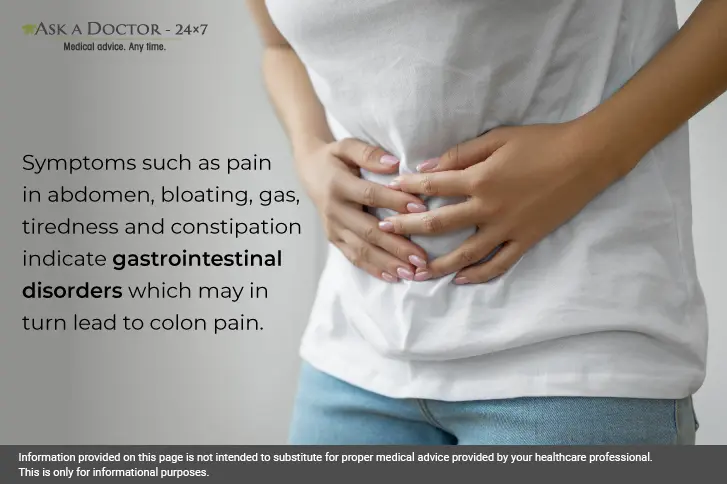What To Eat Before, During, And After Colonoscopy?
Changing lifestyles, low-fiber diets, and long sitting hours have contributed to increased incidence of gut-related diseases. Many of us now prefer to scroll our phones and check out reels mindlessly, rather than take a walk or indulge in a sport during our free time. Inactive lifestyles lead to poor gut motility, in turn giving rise to bowel problems like constipation, bloating, improper digestion, and even the deadly colorectal cancer. In fact, according to the WHO, colorectal cancer is the third most common cancer and a leading cause of cancer-related deaths in the world. And, early detection is the only key to a favorable outcome, if anything abnormal is found.
This is why in the present times, undergoing initial colonoscopy screening is now recommended at age 45 and every 10 years after that until at least age 75. In this blog, we have discussed colonoscopy in detail along with what one should eat before, during, and after a colonoscopy. Read on...
What is a Colonoscopy?

A colonoscopy is a medical procedure in which the doctor examines the inside of the colon and rectum using a colonoscope. The colonoscope is a long, flexible tube that has a light and camera attached at its end.
Why Colonoscopy is Prescribed?
According to the WHO, most cases of colorectal cancer are diagnosed when the disease has already reached an advanced stage and the treatment options become limited. Early detection through screening procedures is important to begin timely treatment. A colonoscopy can be used to screen for colorectal cancer. It is used to look for the causes of symptoms that might be from colon or rectal cancer such as any change in bowel movements, rectum bleeding, or sudden weight loss.
What One Should Eat Before Undergoing Colonoscopy?
If your gastroenterologist has asked you to undergo a colonoscopy, there are certain dietary restrictions to be followed before the procedure. The gut needs to be cleansed so that a clear view of the colon can be obtained.
Here are a few things to keep in mind:
- Start eating light food three to four days before the procedure like clear soups, gruels, and thin porridge.
- Make sure to drink two liters of liquids two days before the procedure.
- Have smaller meals.
- Eat a low-fiber diet that is easy to digest such as white rice, soft-cooked vegetables without skin, eggs, tofu, boiled potatoes, and lean meat.
- Avoid eating nuts, fruits with seeds, red meat, whole grains, and cruciferous vegetables.
A day before the procedure, you will be asked to consume only clear liquids such as clear soups, coconut water, and clear juices like apple juice. You can also have popsicles or gelatin-based foods that are not red or purple in color. You may also have sports drinks in lemon and orange flavors. Do not drink milk or milk-based beverages. Your body should stay hydrated.
Take your medicines and laxatives as instructed by your doctor.
What One Should Eat During Colonoscopy?
Ask a doctor online or consult your gastroenterologist when to stop consuming orally on the day of the procedure. Usually, you are asked to stop the oral diet two hours before the colonoscopy.
What One Should Eat After Colonoscopy?
So, now that the procedure has been done, you may feel a bit bloated for some hours. After getting discharged from the hospital, you can start an oral diet.
Here are a few things to keep in mind:
- Consume warm and light liquids to allow the gas to pass easily and ease your stomach.
- Eat light meals and easy-to-digest foods.
- You can have foods like plain crackers, soups, toasted bread, lean meat, and boiled low-fiber vegetables.
- Avoid gas-producing foods like onions, beans, cabbage, broccoli, and garlic.
- Avoid spicy and deep-fried food.
- Do not drink alcohol 24 hours after the procedure.
Once the bloating is resolved, you can start your regular diet. Take your medicines as instructed by the doctor.
Conclusion
Preparing for a colonoscopy can be a bit daunting and leave you feeling anxious. It is a quick procedure around 30-60 minutes long with a short recovery time. It is an important procedure because it helps the doctor make a correct diagnosis and start timely treatment without the need for major surgery. To know more about the diet to be followed before, during, and after the procedure, ask a gastroenterologist surgeon online.
Recently Answered Questions Related to Colonoscopy
- Suggest Treatment For Constipation And Mucus In Stool
- What Causes Blood In Stool?
- Does Polyps Removal Require Further Tests Post-operation?
- Can Oxylite Pro Tablet Cause Any Problem If Taken Before Colonoscopy?
- Can Stool Test Detect Colonoscopy?
- Does Blood In Stool Need A Colonoscopy?
- What Does A Constriction In The Descending Colon Indicate?
- Suggest Treatment For Constipation While Treating Vitamin D Deficiency
- What Causes Small Light Brown Stains On Slacks?
Disclaimer: Information provided on this page is not intended to substitute for proper medical advice provided by your healthcare professional. This is only for informational purposes.
Ask a Specialist
Recent Questions


